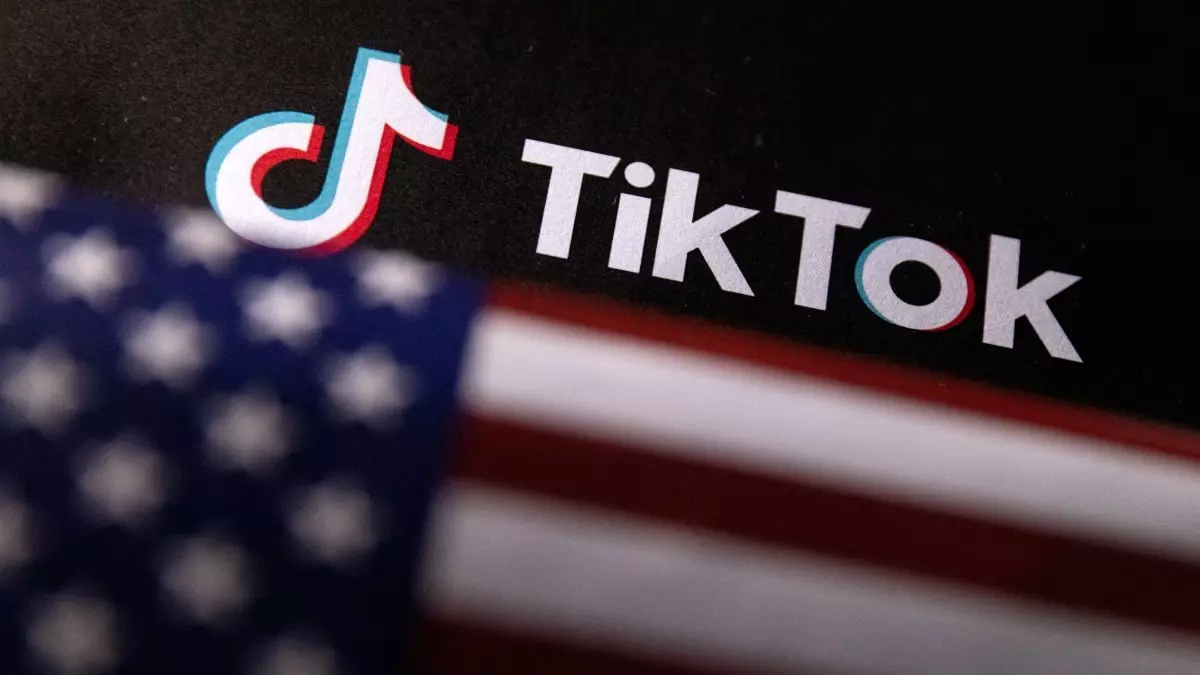In the rapidly evolving digital landscape, few controversies have stirred as much debate as the ongoing saga surrounding TikTok in the U.S. This Chinese-owned social media platform has not just captured the attention of users, but has also ignited a whirlwind of legislative and executive action. Recent developments illustrate the precarious balance between national security concerns and consumer engagement, raising questions about the future of apps owned by foreign entities on American soil.
TikTok made headlines once again when it returned to the app stores of Apple and Google, following President Donald Trump’s unexpected decision to delay a potential ban. The app, which had briefly vanished from the digital storefronts due to looming national security legislation, is back online for its millions of users. This turnaround occurred after Trump secured assurances from the tech giants that they would not be penalized for hosting the app; a significant factor that allowed TikTok to resume its operations.
As per reports, the app had become a cultural phenomenon, with nearly half of the American population engaging with its content. Despite its controversial ownership by ByteDance, the app managed to garner over 52 million downloads in 2024 alone. Yet, this growth comes against a backdrop of intense scrutiny and regulatory hurdles.
The legal landscape concerning TikTok is fraught with complexities. A law enforced on January 19 mandated that ByteDance either divest TikTok’s U.S. assets or face an outright ban. This legislation was rooted in apprehensions that the Chinese government could exploit user data for espionage purposes. Historically, the U.S. government has refrained from banning social media platforms—a precedent that complicates the current situation.
Indeed, President Joe Biden, who succeeded Trump, signed the order that mirrors concerns raised by his predecessor. National security fears have triggered a wave of civil and governmental scrutiny, leading to bipartisan support for the legislation. However, the government’s rush to regulate raises additional questions about free market principles versus the need for security.
Amid the uncertainty surrounding TikTok’s future, the platform has attracted attention from prospective buyers, including former Los Angeles Dodgers owner Frank McCourt. Analysts estimate TikTok’s value to be around $50 billion, making it an attractive asset despite the surrounding controversies. The ongoing discussions between Trump and various stakeholders may point to a shift in ownership rather than an outright ban on the app.
This presents an intriguing paradox: While TikTok’s parent company faces potential divestment, the app continues to thrive by engaging a vast audience. The dual pressures of regulatory scrutiny and market interest illuminate the challenges foreign-owned apps face in the United States. Notably, the absence of a major precedent for banning social media platforms raises the stakes for both the app and the entities contemplating its acquisition.
Trump’s recent comments suggested a possible extension of the 75-day deadline for TikTok’s sale or ban, which means that the future of the platform hangs precariously in the balance. This ambiguity is problematic for the app’s users and stakeholders alike, who seek stability in a volatile digital market. As companies like Apple and Google navigate their role in this unfolding drama, they remain in a delicate position where consumer demand meets governmental oversight.
The interactions between the tech giants, the government, and potential buyers will shape not only TikTok’s fate but also set important precedents for how similar situations might be handled in the future. The unresolved issues tied to data privacy, national security, and foreign ownership continue to challenge regulators while capturing the interests of millions of users eager for their favorite platform to remain operational.
TikTok’s complicated journey in the U.S. embodies the intersection of culture, commerce, and governance in the digital age. As all parties involved grapple with the implications of operating amidst a backdrop of increasing scrutiny and legislative challenges, it remains to be seen how TikTok will navigate its future in the American marketplace.


Leave a Reply